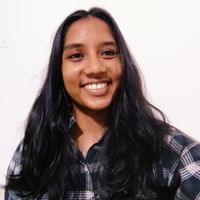Caster Semenya, Olympic gold-medalist, World Champion, and now author of the book "The Race To Be Myself" recently opened up on what it was like growing up as herself in the small village of Mokadi.
Born in 1991, Semenya took up sprinting as a young teenager, before making waves at the Berlin World Athletics Championships in 2009 where she stormed to a gold. However, at a time when the world would have been focused on the athletic feat of the 18-year-old, many turned to questioning her gender.
People asked if she was born a hermaphrodite or if she was transgender, with the IAAF (now World Athletics) requiring her to take gender verification tests on the day before she was to race in Berlin. Leaked test results revealed that Caster Semenya had thrice the testosterone in her system than the average woman.
For Semenya however, this line of questioning about her gender was something she had been dealing with long before her international athletics career. The runner recalled growing up in Mokadi, where she would often encounter adults outside of her family telling her that she wasn't a regular girl.
“People might’ve been like: ‘Ah, you, you’re more like a boy.’ And I’d say: ‘Yes, that’s how I am. That’s how I live my life, that’s how I’m gonna be. You take it or leave it. If someone would say something, I’d go: ‘What are you gonna do about it?’ Because I am what I am, and I’m not gonna change,” she told The Guardian in an interview.
For Caster Semenya, her sisters were her shields when she was growing up. She detailed how her sisters knew she wasn't quite like them, but protected her fiercely when she needed it the most.
"They understood me, even back then, when they were protective of me."
Caster Semenya's on her identity as a woman

A
fter her gold medal-winning performance in 2009 Berlin, controversy continued to rage against Caster Semenya. In July 2010, the IAAF put her on a course of hormonal contraceptives to lower her natural testosterone, in order for her to compete at the elite level.
Despite the fact that the medication brought her significant discomfort, Semenya continued the course and continued to win. While on hormonal contraceptives, the athlete raced to a gold at both the Olympics and the World Championships, after Russian Mariya Savinova was stripped of her gold due to doping.
In 2011, World Athletics classified Semenya as a woman with hyperandrogenism, and in 2018 they started to use the phrase "athletes with differences of sexual development (DSD)”.
For Caster, she is none of that.
"Those are [the media’s] own terms. I’m an African, I’m a woman, I’m a different woman. That’s the only term I can use."
"This one is intersex, this one is this, this one is that.’ That’s their own belief – it’s not my belief. If I have a ‘disorder’, I don’t give a shit about that. The disorder doesn’t define me as a woman. Disorders don’t make you less of a woman – you’re just different.”
